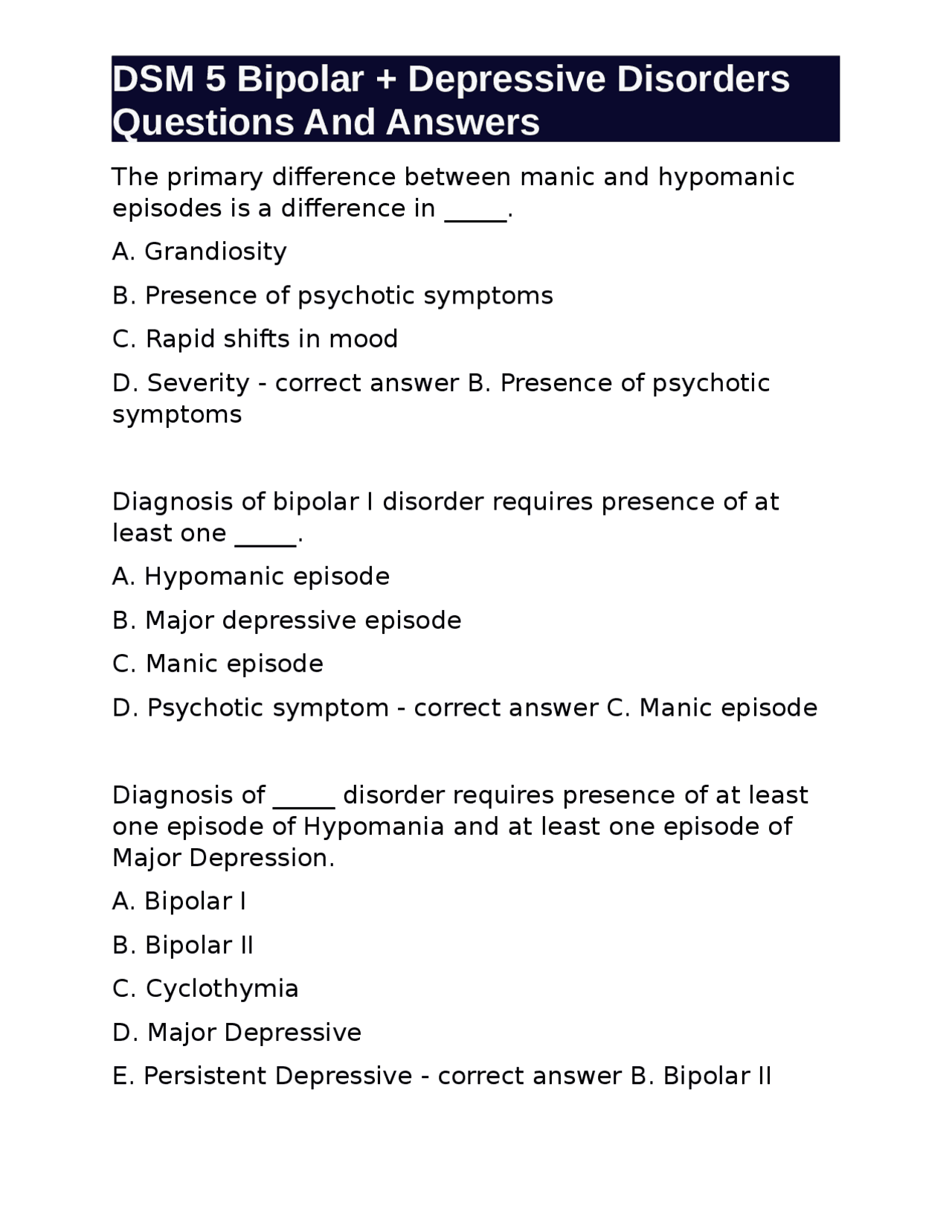Beyond the DSM-5: The One Question That Matters with Your Doctor - Dr. Bob’s Advice
The Diagnostic and Statistical Manual of Mental Disorders, 5th Edition (DSM-5), is a cornerstone of mental health diagnosis. It provides a standardized language and criteria for identifying and classifying mental health conditions. However, relying solely on the DSM-5 can sometimes feel like navigating a map without a compass. This article, inspired by Dr. Bob’s advice, explores the vital question you should always ask your doctor, going beyond the diagnostic label to understand your individual experience and foster a more effective path to well-being.
Understanding the Limitations of the DSM-5
While the DSM-5 is a powerful tool, it’s essential to recognize its limitations. It primarily focuses on:
- Categorization: It groups symptoms into diagnostic categories. While this can provide a framework, it doesn’t always capture the nuances of an individual’s experience.
- Symptom-Based Diagnosis: Diagnosis relies on the presence and severity of specific symptoms, which can be subjective and vary from person to person.
- Lack of Context: The DSM-5 doesn’t fully consider an individual’s unique background, life experiences, and cultural context.
- Risk of Oversimplification: Reducing complex human experiences to a set of diagnostic criteria can sometimes lead to a narrow understanding and treatment approach.
The Crucial Question: “What is the Impact of My Symptoms on My Life?”
Dr. Bob, a seasoned mental health professional, consistently emphasized that the most critical question to ask your doctor goes beyond the diagnostic label. It’s not just about what you have, but how it affects you. The question is: “What is the impact of my symptoms on my life?”
This seemingly simple question opens the door to a deeper understanding and more personalized treatment. It encourages your doctor to consider:
- Functional Impairment: How are your symptoms impacting your daily functioning? Are you struggling with work, relationships, self-care, or other essential areas of life?
- Specific Challenges: What specific difficulties are you facing due to your symptoms? This could include difficulties with sleep, concentration, social interactions, or emotional regulation.
- Areas for Improvement: What areas of your life would you like to see improved? This helps your doctor tailor treatment to your individual goals and priorities.
- Quality of Life: How are your symptoms affecting your overall well-being and quality of life?
Why This Question Matters: Building a Personalized Treatment Plan
Asking about the impact of your symptoms is crucial for several reasons:
- Personalized Treatment: It allows your doctor to tailor your treatment plan to your specific needs and goals. Treatment isn’t just about managing symptoms; it’s about improving your life.
- Improved Communication: This question encourages open and honest communication between you and your doctor, fostering a collaborative relationship.
- Goal-Oriented Approach: Understanding the impact of your symptoms helps define concrete goals for treatment, making progress more measurable and motivating.
- Holistic Perspective: It encourages your doctor to consider your life circumstances, relationships, and other factors that may be contributing to your symptoms.
- Empowerment: Asking this question empowers you to take an active role in your mental health journey.
Beyond the Diagnosis: Additional Questions to Consider
While “What is the impact of my symptoms on my life?” is paramount, consider these supplementary questions:
- What are the potential treatment options, and what are their potential side effects?
- What lifestyle changes can I make to support my mental health?
- Are there any support groups or resources available for people with my condition?
- How can I monitor my progress and know if the treatment is working?
Conclusion: Prioritizing Your Well-being
The DSM-5 provides a valuable framework for understanding mental health conditions. However, true healing goes beyond diagnosis. By consistently asking your doctor, “What is the impact of my symptoms on my life?” you prioritize your individual experience, fostering a more personalized, effective, and ultimately, fulfilling path to well-being. Embrace this proactive approach and become an active partner in your mental health journey. Dr. Bob’s advice, focused on the individual, is a cornerstone of effective mental healthcare.
Frequently Asked Questions (FAQs)
1. Why is asking about the impact of symptoms more important than just getting a diagnosis?
A diagnosis provides a label, but it doesn’t tell you how the condition affects your daily life. Understanding the impact allows for a personalized treatment plan that addresses your specific challenges and goals, leading to more effective and meaningful improvement.
2. What if my doctor doesn’t seem to understand the impact of my symptoms?
If your doctor doesn’t readily address the impact of your symptoms, gently reiterate your concerns. You can also seek a second opinion from another mental health professional who may offer a different perspective or approach.
3. How can I prepare to discuss the impact of my symptoms with my doctor?
Before your appointment, reflect on how your symptoms affect your daily life. Consider specific examples, such as difficulties at work, relationship challenges, or struggles with self-care. Write down your thoughts and questions to ensure you cover all relevant aspects.
4. Should I be worried if my doctor prescribes medication without discussing the impact of my symptoms?
It’s essential to discuss the impact of your symptoms before medication is prescribed. This allows your doctor to understand your individual needs and to tailor the treatment plan appropriately. Don’t hesitate to ask questions and express your concerns.
5. What if I don’t feel like my symptoms are having a significant impact on my life?
Even if you feel your symptoms aren’t severely impacting your life, it’s still helpful to discuss them with your doctor. Minor symptoms can still be addressed to prevent them from worsening or to improve your overall quality of life.




